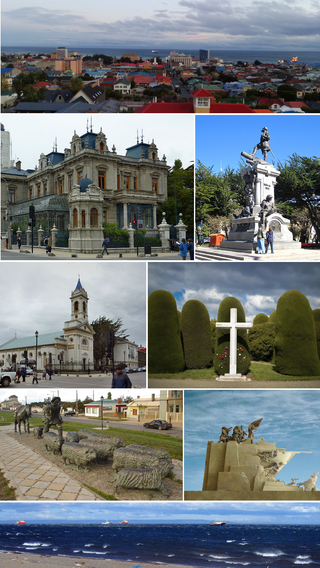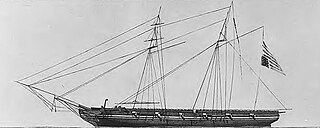
Chile, officially the Republic of Chile, is a country located in western South America. It is the southernmost country in the world and closest to Antarctica, stretching along a narrow strip of land between the Andes Mountains and the Pacific Ocean. With an area of 756,096 square kilometers (291,930 sq mi) and a population of 17.5 million as of 2017, Chile shares borders with Peru to the north, Bolivia to the northeast, Argentina to the east, and the Drake Passage to the south. The country also controls several Pacific islands, including Juan Fernández, Isla Salas y Gómez, Desventuradas, and Easter Island, and claims about 1,250,000 square kilometers (480,000 sq mi) of Antarctica as the Chilean Antarctic Territory. The capital and largest city of Chile is Santiago, and the national language is Spanish.

Chile's government is a representative democratic republic, whereby the President of Chile is both head of state and head of government, and of a formal multi-party system. Executive power is exercised by the president and by their cabinet. Legislative power is vested in both the government and the two chambers of the National Congress. The judiciary is independent of the executive and the legislature of Chile.

The Christian Democratic Party is a Christian democratic political party in Chile. There have been three Christian Democrat presidents in the past, Eduardo Frei Ruiz-Tagle, Patricio Aylwin, and Eduardo Frei Montalva.

The Radical Party of Chile, is a classical radical political party in Chile. This party has been referred to as a liberal, a social-liberal, and a social-democrat.

The Green Ecologist Party was a Chilean political party and one of South America's members of the global green movement.

The Communist Party of Chile is a communist party in Chile. It was founded in 1912 as the Socialist Workers' Party and adopted its current name in 1922. The party established a youth wing, the Communist Youth of Chile, in 1932.

Jean-David Nau, better known as François l'Olonnais, was a French pirate active in the Caribbean during the 1660s.

Tomás López Marín y González de Poveda, 1st Marquis of Cañada Hermosa was a Spanish colonial administrator who served as Royal Governor of Chile.

Edward Davis or Davies was an English buccaneer active in the Caribbean during the 1680s and would lead successful raids against Leon and Panama in 1685, the latter considered one of the last major buccaneer raids against a Spanish stronghold. Much of his career was later recorded by writer William Dampier in A New Voyage Round the World (1697).

Punta Arenas is the capital city of Chile's southernmost region, Magallanes and Antarctica Chilena. Although officially renamed as Magallanes in 1927, the name was changed back to Punta Arenas in 1938. The city is the largest south of the 46th parallel south and the most populous southernmost city in Chile and the Americas. Due to its location, it is also the coldest coastal city with more than 100,000 inhabitants in Latin America. Punta Arenas is one of the world's most southerly ports and serves as an Antarctic gateway city.

El Quisco is a Chilean city and commune in San Antonio Province, Valparaíso Region. Located in the country's central coast, it serves as a popular summer resort for the population of Santiago and forms part of the Coast of Poets, a cultural space named after four world-renowned Chilean poets: Pablo Neruda, Vicente Huidobro, Violeta Parra and Nicanor Parra. El Quisco is home to La Casa de Isla Negra, the former house of Chilean poet Pablo Neruda, which is now a museum and Neruda's burial site.

British–Chile relations are foreign relations between the United Kingdom and Chile. The two countries maintain strong cultural ties as Chilean culture was somewhat anglicised after independence, seeing many mutual investments since. Standard visits, on terms each country applies, allow visitors and short-term study, without need for a travel visa endorsed in a passport.

Pirate Parties International (PPI) is an international non-profit and non-governmental organization with headquarters in Brussels, Belgium. Formed in 2010, it serves as a worldwide organization for Pirate Parties, currently representing 39 members from 36 countries across Europe, Americas, Asia, Africa and Australasia. The Pirate Parties are political incarnations of the freedom of expression movement, trying to achieve their goals by the means of the established political system rather than just through activism. In 2017 PPI had been granted special consultative status to the United Nations Economic and Social Council.

The West Indies Anti-Piracy Operations refer to the United States Navy presence in the Antilles, and surrounding waters, which fought against pirates. Between 1814 and 1825, the American West Indies Squadron constantly pursued pirates on sea and land, primarily around Cuba and Puerto Rico.After the capture of Roberto Cofresi in 1825, acts of piracy became rare, and the operation was considered a success, although limited occurrences went on until slightly after the start of the 20th century.

Gabriel Boric Font is a Chilean politician and the current President of Chile, having assumed office on 11 March 2022. He studied law at the University of Chile but did not graduate. Boric gained recognition as a student leader, serving as the President of the University of Chile Student Federation from 2011 to 2012 and becoming a prominent figure in the 2011–2013 Chilean student protests.

Chile Vamos is a centre-right to right-wing political coalition of three political parties in Chile. The coalition was created on 29 January 2015 by the general secretaries of the Independent Democrat Union (UDI), National Renewal (RN), Democratic Independent Regionalist Party (PRI) and Political Evolution (Evópoli).

A national plebiscite was held in Chile on 25 October 2020. The referendum asked the citizens whether they wanted a new constitution to be drafted, and if so, whether it should be written by a constitutional convention made up of directly elected citizens or by a mixed convention that was composed of currently serving members of Parliament and half of directly elected citizens. The "Approve" side won by a landslide, with 78% of voters agreeing to draft a new constitution. When it came to deciding how the new text should be written, 79% of voters opted for a "Constitutional Convention." The voter turnout was 51%.

















